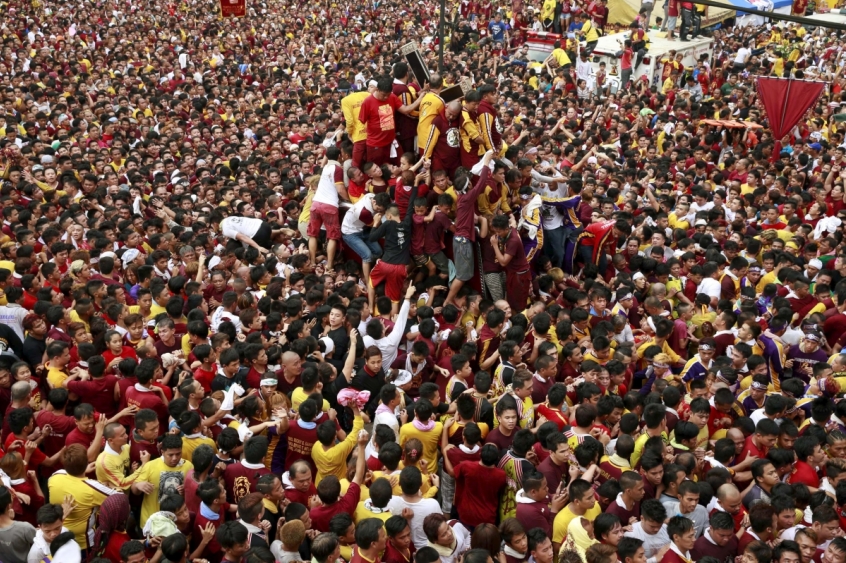
More than a million Filipino Christians processed through Manila on Monday praying for miracles.
The devotees paraded with a black wooden statue of Jesus Christ, known as the Black Nazarene, which is believed by many of the country's Catholics to have healing powers.
According to Reuters, people reached out towards the icon in the hope that even the slightest touch would bless them, heal their illnesses and those of their relatives.
The process occurs every year on 9 January, and in previous years has drawn crowds of more than 12 million. Church officials said up to 15 million are expected to pay their respects this year, during a procession which will last more than 20 hours.
Before it began, devotees took part in a vigil and Eucharistic celebration.
"My purpose here is to give thanks to the Lord for all the blessings he has given me and my family every day," Jimray Bacomage, 37, told Reuters, saying the Black Nazarene had healed his broken arm.
About 80 per cent of the more than 100 million people of the Philippines are Roman Catholic and the former Spanish colony is famous for its colourful religious festivals.
The Black Nazarene, a life-sized wooden statue of Christ kneeling with a cross on his shoulder, is also paraded through the city on Good Friday to commemorate his crucifixion. It is usually enshrined in the Quiapo Church in Manila.
According to the Catholic News Agency (CNA), it has become "an emblem of passion, struggle and faith for Filipino Catholics".
Father Jose Clemente Ignacio, Rrector of the Minor Basilica of the Black Nazarene, told CNA that Catholics will wait for hours and hours just to touch the statue.
Of the procession, he said: "In a way it is imitating the Calvary experience: the sacrifice and suffering that our Lord endured for our salvation like when Jesus was walking barefoot, carrying the cross to Mount Calvary.
"The devotees also want to give back to God by participating in the suffering of our Lord and entering into the Paschal mystery of Christ."
"The Lord solved all the problems that came our way ever since I started attending the Feast of the Black Nazarene 16 years ago," 72 year-old Roilo Damiucon, who took part in the procession today, told Reuters.
About 4,000 soldiers, police and emergency workers were on duty for the procession but police said there were no serious incidents.
Some Western governments had warned of "possible terrorist threats to the procession". Mobile telephone services in the area were cut and authorities banned the use of drones and firecrackers.
More than 100 devotees suffered minor injuries in the throng, the Philippine Red Cross said. In 2016, two people were killed and more than 1,200 people suffered minor injuries.
Additional reporting by Reuters













